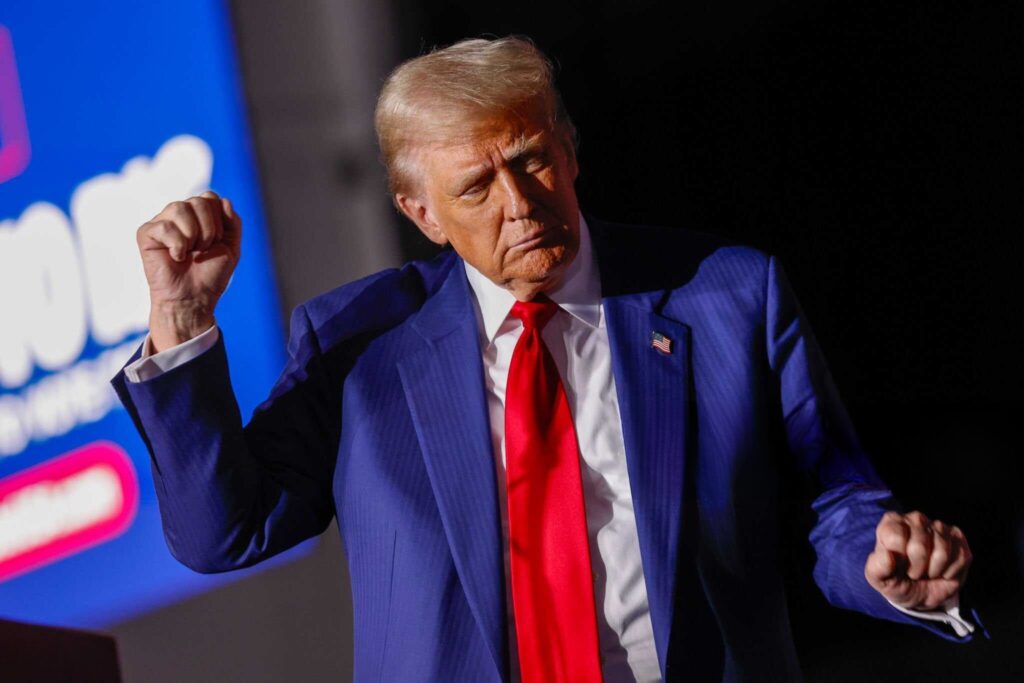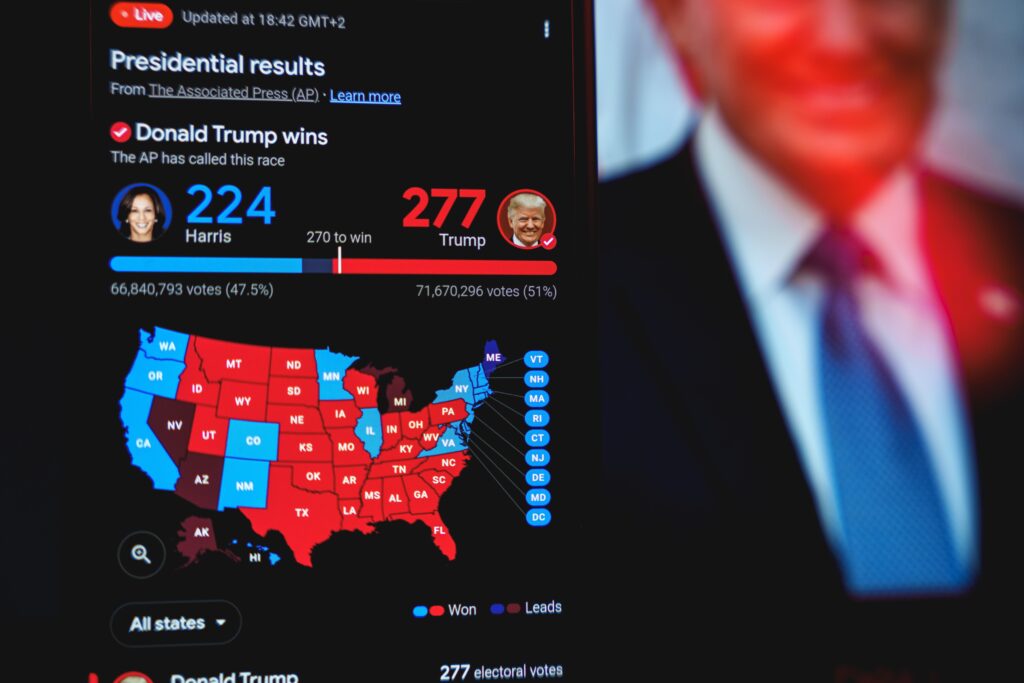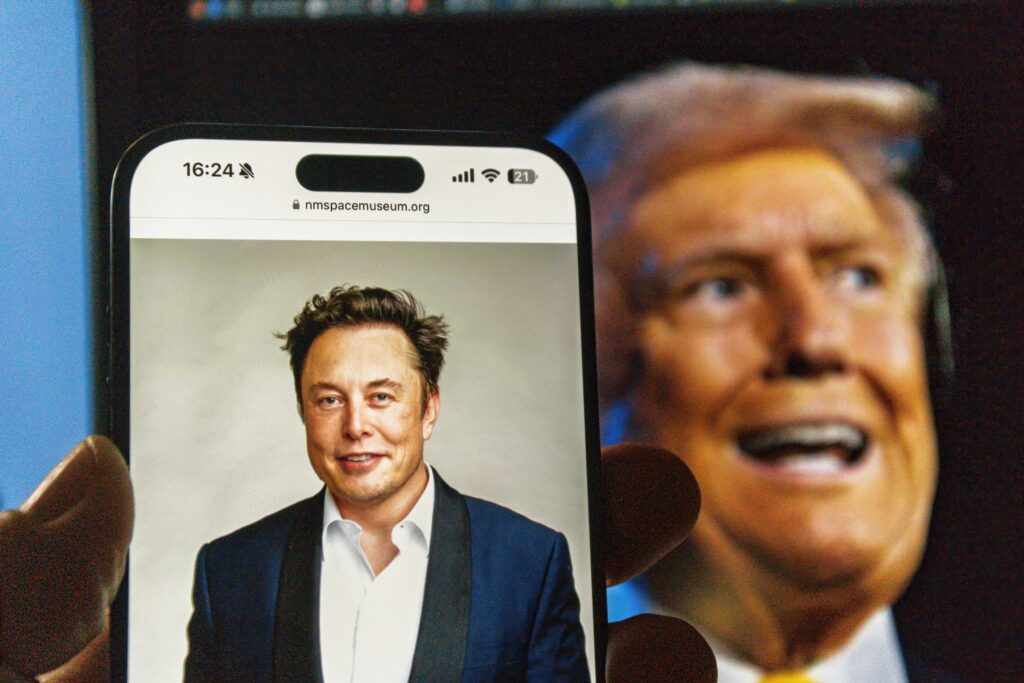Trump will not save America, just as he will not bring peace to the world. The fact that he may end the war in Europe does not mean he won’t ignite new conflicts elsewhere

By Ljiljana Vujić
These are not historic elections, just as most of the previous ones labeled as such were not. However, they are a megalomaniacal endeavour for a billionaire and the 47th President of the United States, who, despite all abnormalities, has been given the power to once again play with the world order.
And that is indeed a problem because his decisions affect the entire world. Yet, this is nothing new—just slightly more bizarre compared to elections of the past, but entirely expected when viewed within the context of today’s time and circumstances.
Donald Trump is the first president in 120 years to manage a comeback victory after being defeated, a fact that is particularly shocking as he is also the first president awaiting sentencing for a criminal offense. The future American president was teetering on the edge of either ending up in prison or the White House. However, that wasn’t the reason why the world was glued to the November American elections.
Some were convinced, despite surviving his first term, that his reelection would bring about an apocalypse. Others anticipated witnessing Kamala Harris becoming the first woman at the helm of the United States.
Both camps were wrong. The latter, not because Americans aren’t ready for a woman, but because they aren’t ready for Kamala, who gave them nothing but a smile (and this wasn’t a beauty pageant). The former were mistaken because they misinterpret what they hear in the media.
Following the press primarily means understanding what those in power want the reader to believe. Trump, as tradition dictates, will likely be worse in his second term, wielding more power and being more radical, but he won’t come closer to an apocalypse than the previous administration did.
Is there a greater paradox than the identification of the ordinary person with Trump? The belief that he, a billionaire, will save them—the working class
Paying attention to Trump’s bombastic statements means being attuned to what he wants his voters to think of him. Believing that it will truly unfold as he says is to nourish illusions.
He claims he will fight for a strong, secure, and prosperous America. This, he says, will be the golden age of the United States.
The golden age will be—and already is—for Donald Trump, as well as for Elon Musk and Ohio Senator J.D. Vance, who undoubtedly envision themselves in the Oval Office one day.
The new-old president will not save America, just as he won’t trigger an apocalypse or bring peace to the world. He will likely end the tragedy in Ukraine, which was inevitable even if Kamala Harris had won—the only difference being a matter of style and timing. There are already indications that he will drastically reduce support for Ukraine, as the money is needed for the American market. He will also turn his attention to the Middle East, which doesn’t rule out the possibility of new conflicts fueled by his personal obsessions, such as with Iran.
Analysts who dismissed him during the campaign or predicted an extremely tight race were either poorly informed or deliberately trying to shape voter expectations. Either way, it didn’t work—and that’s the truly amusing part.
Of course, Trump’s victory didn’t surprise many, even if it didn’t please them. They were paying attention to the signs, like the bullet at a rally that grazed his ear.

The final event that stripped election night of its element of surprise occurred just days before the vote, when Jeff Bezos, owner of The Washington Post and Amazon, decided to break with tradition by withholding clear support for Kamala Harris. More precisely, he chose to end the paper’s backing of the Democratic candidate just days before the election.
Previously, as they had done for decades, the paper had lent its full editorial support to the Democratic contender. Bezos’s move made it easy to imagine the long line soon to form—of those waiting to kiss Trump’s ring.
What comes as something of a surprise is not just Trump’s resounding victory but also the success of the Republican Party, which, most importantly, gained control of the Senate and secured a majority of gubernatorial positions across the states. In other words, they now have a free hand when it comes to the most critical nominations, which require Senate approval. For passing budgets and securing financial support for major projects, they will negotiate with the Democratic majority in the House of Representatives.
Additionally, Trump won not only the Electoral College but also achieved a significant margin in the popular vote—far greater than when he secured his first term. The overall election results achieved by the Republicans have potentially made him the most powerful American president since Franklin D. Roosevelt.
Future Vice President J.D. Vance described this as the greatest political comeback in U.S. history. This claim holds even more weight considering that in 2016, no one took Trump seriously, and during this campaign, many argued it was impossible for him to stage a return after losing to Joseph Biden in 2020. Since then, he had become one of the most reviled political figures, subjected to media lynching after the post-election riots and the storming of Capitol Hill. His reputation was tarnished by numerous scandals, lawsuits, the loss of his social media presence, and even debates about whether he was fit to run again. He was declared unworthy.
Four years later, he has become the 47th President of the United States—with a result better than ever before.
An Optical Illusion
Trump’s success says a great deal about his opponent. The source of the phenomenon lies in what voters think about the Democrats and their conviction that someone like Trump represents them. That a billionaire will save them—the working class. Is there a greater paradox than the identification of the ordinary person with Trump? A man who tramples everything that defines the average person, simply because he constantly proclaims how bad the situation is.
Trump, a critic of the system, became their voice at the podium. The only one who says what they think as he rails against Washington’s bureaucracy, disconnected from everyday people. On that wavelength, a shamelessly wealthy man and voters with thinning wallets found common ground. His approach to foreign policy, whether he is racist, fascist, or anything else, is irrelevant to his base.
Kamala Harris, despite being “carried on the shoulders” of Hollywood stars, pop icons, and even Michelle and Barack Obama, failed to connect. Her pearly smile and open arms were in vain. That glamour is not of the people. That elite is not dissatisfied. Trump is—or at least, that’s what he claims.
Once again, the alienation of liberals from the common man has been punished
Every attack by the system against him only boosted his popularity. Instead of being discredited when arrested and photographed for prison records, his mugshot became a symbol, attracting record donations to his campaign. Every lawsuit and scandal, from sexual misconduct to corruption and criminal charges, only brought him closer to the ordinary citizen. Each new clash with the authorities mirrored the average American’s struggles against the system.
He is the first convicted president of the United States. America has put a criminal offender in power and handed him the ability to pardon himself. The illusion that through Trump the people have defeated the establishment has coloured all shades of reality. The first and most glaring is that he is, in fact, the very embodiment of what they claim to fight against.
He and, to some extent, Elon Musk. We’ve witnessed his growing popularity among Latinos, young voters, and even African Americans. Trump is obsessed with expelling illegal immigrants from the U.S., building border walls, and erecting barbed wire fences, claiming they steal jobs—despite automation being the far greater culprit.
His ally and great guru of the future American administration, Elon Musk, dreams of robotizing humanity. Machines will increasingly replace humans in the workforce.

Musk’s Best Investment
Tesla’s stock soared by more than 10% in a single day, pushing the electric vehicle manufacturer’s market value past $1 trillion. Following the election outcome, Tesla’s shares have risen overall by around 27%. Investors believe the return of the new-old president will benefit Tesla. It seems that the $130 million reportedly invested in Trump’s campaign by Elon Musk was his best investment yet—and this is just the beginning.
Analysts suggest that one thing is almost certain not to change, especially as China’s influence continues to grow: the U.S. stance toward Beijing. China was a key rival that Trump sought to contain during his first term, and that rivalry is expected to persist. However, there is growing speculation that the key figure shaping U.S.-China relations might not be Trump but Tesla’s owner himself.
According to some, Musk represents a new approach—a sign that relations between the two powers don’t have to be defined by rivalry and conflict.
As for who should be most concerned come January, when Trump returns to the White House, most bets point to Brussels. Yet, keen observers are more intrigued by Washington’s future relations with Latin America than its dynamic with Europe. That promises to be an interesting new chapter.
As for Russia, as Moscow itself has admitted, relations with the U.S. simply cannot get any worse.